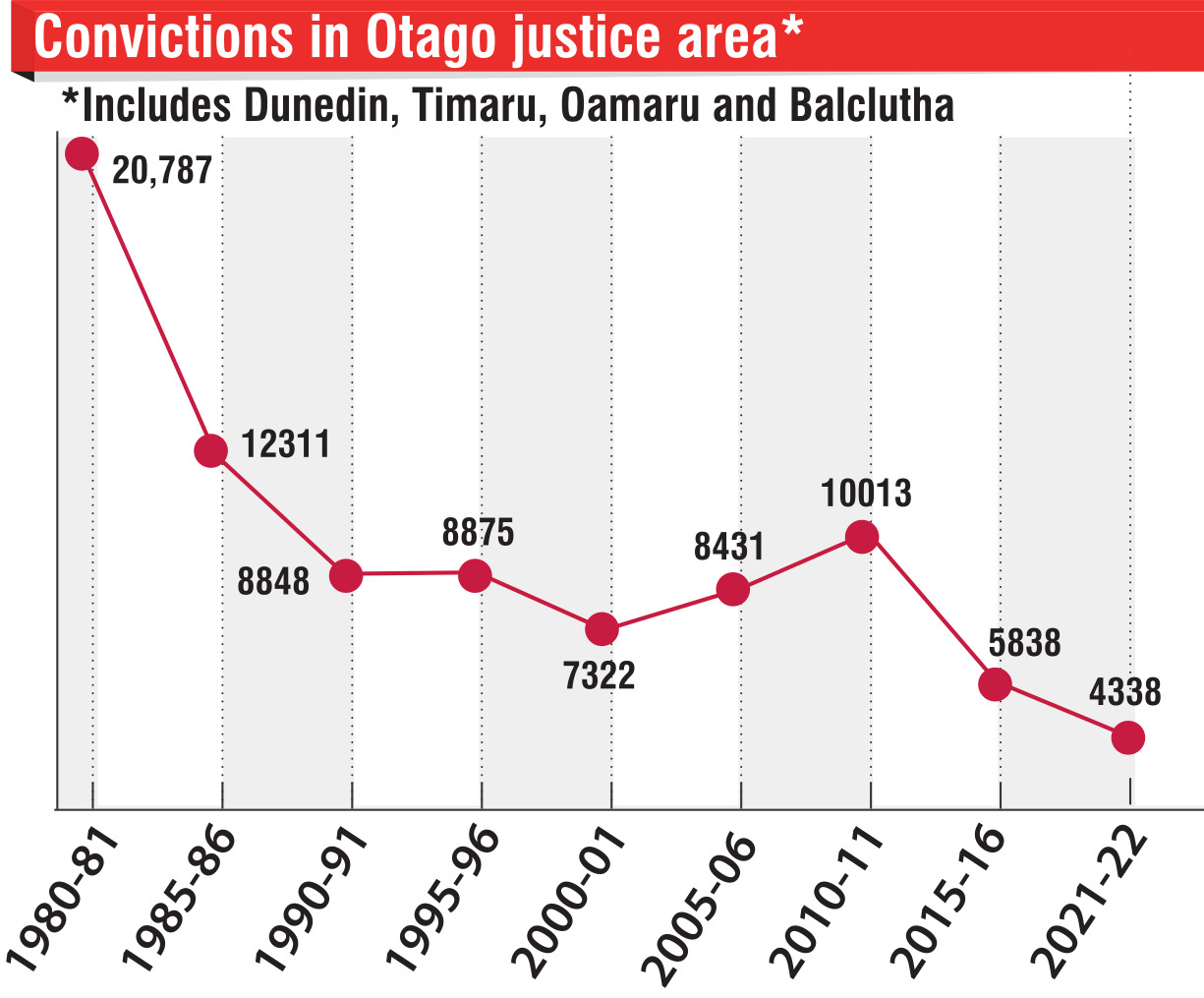
Figures released by Stats NZ last month show that while 20,787 convictions were given to adults in Otago in the 1980 financial year, that figure plummeted to 4338 in 2021.
The Otago Justice Service area includes courts in Dunedin, Timaru, Oamaru and Balclutha.
A high of 5368 charges were not proved in 1981, compared to a low of 1239 in the most recent financial year.
A similar trend happened nationwide, where 248,067 adult convictions were given out in the 1980 financial year compared to 116,393 in 2021.
When sorted by most serious offence, the data shows a high of 11,864 sentences were passed in 1980, compared to a low of 1715 in 2021. However, the number of prison sentences peaked in 2009 (483) and 2006 (475), compared to a low of 210 in 1980.
A high of 10,826 monetary sentences were given out in 1980 compared to a low of 584 in 2021, the most serious offence data shows.
University of Canterbury criminologist Jarrod Gilbert said the long-term trends were very straightforward.
Crime rates peaked in the late ’80s and early ’90s especially in regards to youth offending, Dr Gilbert said.
The average age of offenders was increasing and so too were domestic violence statistics, as it was being treated more seriously by the criminal justice system now.
"We talk a lot about things going to hell in a hand basket when it comes to crime. In reality, that's just not true," Dr Gilbert said.

There were many factors at play regarding the decrease, including changes to demographics and changes to technology.
Some types of crime had vanished entirely, such as TAB robberies which used to be talked about in a similar way to how ram raids are now.
Dishonesty offences had decreased as there was less cash and more technology being used.
When surveys were conducted, the vast majority of people overestimated the prevalence of crime.
"In reality, the overall picture tells a far more comforting story," Dr Gilbert said.
Media reporting highlighted crime and there was research to show around 20% of all reporting was related to crime and justice.
"20% of peoples lives aren’t dominated by crime, not unless you’re in prison," Dr Gilbert said.
The types of crime highlighted also tended to be the most sensational and violent.
Far more people were affected and bigger sums of money were involved in online fraud, but smash and grabs made for better stories.
"I don’t know if you can report that, but that's the way it is," Dr Gilbert said.












